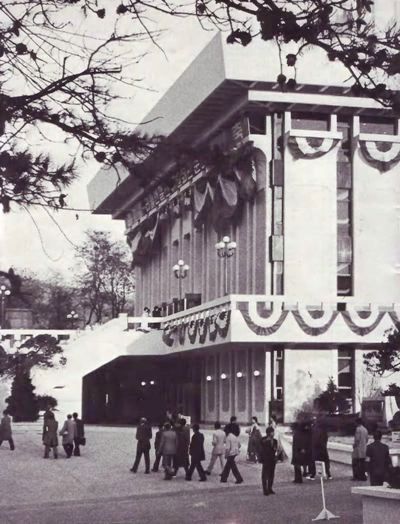![]()
The Words of the Elder Family
|
|
The Words of the Elder Family |

During Father's last visit to Korea, he reorganized the Korean church, asking couples from the 36, 72, 124 and 430 couple Blessings to concentrate on home church. Tim Elder, an American who has been working since 1978 with the supra-denominational program in Korea, gave some of his impressions of the Korean church.
The Korean church is centered on the blessed families. A substantial number of the members are blessed (not so many people have joined recently), and there are a great many blessed children. There is no emphasis on communal lifestyle as in the West; the nuclear family lives together and forms a church, with the father as the center director.
Activities at the church building include pledge service (although blessed families often say the pledge in their homes, in order to educate their children). Sunday morning service (usually at 11:00), and often a Sunday evening service and a Wednesday evening prayer service (depending on the leader).
Now the church is in an upheaval, with the sweeping personnel changes Father made in all aspects of the church. The Korean church needs to push evangelism in a very intensive way, and former business leaders or department heads were asked to resign their position and concentrate on evangelism instead. At present there are about 15 or 20 local churches in Seoul, with the headquarters church located in Chungpa Dong, but the goal of the new evangelism effort is to establish 400 churches in the capital.
The providence is coming down to the wire now; therefore, we must make intensive efforts. For a number of years, the greatest effort has been expended in branch organizations in our church, but now our basic work, that of evangelism, needs to make a new spurt.
Home church means a change in activity in our Korean church. Groups of ten families or individuals working in one neighborhood will cooperate in home church efforts, supporting each other. Each group has the goal of forming a church (building and all) on the foundation of the people in their combined areas of 3,600 homes.
Last July Father had sent out the wives of the 36, 72, 124 and 430 blessed couples, to do pioneering work throughout Korea, but now they have returned. Once before, in 1970, Father had sent out all the blessed wives for three years of pioneer work.
This time, however, the husbands are supposed to take responsibility for evangelism, and the wives will have to support their families economically. Many Koreans are not affluent enough to give charitable donations. These families will likely be making incredible sacrifices. Moreover, most older blessed couples also suffer from some kind of physical difficulty, arising from their sacrifices in the past. In the early 1960's, for example, there was a time in our movement when there was nothing to eat; our members were really destitute.
The new president of our church in Korea, Rev. Jae Suk Lee. is an extremely active person, always coming up with new ideas, new methods to try. For the past 15 years, he has been head of the supra-denominational work in Korea. Through this program, about 1,500 Christian ministers and another 1,500 lay leaders have attended Principle seminars and signed statements of support. In these years of working with the Protestant churches, Rev. Lee has tried every method he and Father can think of to accomplish the goal. He keeps pounding against the wall of opposition, in different ways, with different tools.
Rev. Lee, one of the 36 blessed couples, was raised a Buddhist and graduated from law school in Seoul. He is very loyal to Father. He has many ideas, and although Father sometimes rejects them, often he takes these ideas and builds upon them. In his work with the Protestant churches in Korea, he has been able to observe the qualities of the churches that are successful and growing. I believe, for instance, that he wants to emphasize early morning prayer services every day at the church, a practice at some of the Korean Protestant churches.
Under his leadership, the supra-denominational work has been a very dynamic movement. Thus, I expect that now the Unification Church will also inherit this dynamism, beginning with the radical changes that are now taking place.